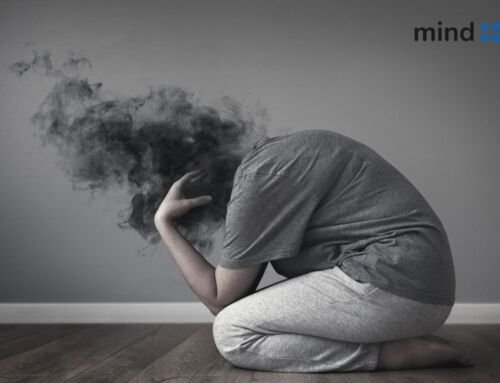Understanding and Managing Anxiety in India: Tips and Techniques
By Preeti, Clinical Psychologist
In India as well as in other countries throughout the world, millions of people suffer from the common mental health problem of anxiety. It can appear as a persistent sense of unease, dread, or worry that interferes with day-to-day activities. This blog will discuss the various types of anxiety disorders, the meaning of anxiety, its symptoms, and helpful tips and coping mechanisms for understanding and managing anxiety.
What is Anxiety?
 Anxiety is a common human feeling that serves to get us ready for upcoming risks or difficulties. However, anxiety can be categorized as an anxiety disorder when it becomes excessive, enduring, and interferes with daily functioning. Excessive and unreasonable fear or worry, which can be debilitating and overwhelming, is a hallmark of anxiety disorders.
Anxiety is a common human feeling that serves to get us ready for upcoming risks or difficulties. However, anxiety can be categorized as an anxiety disorder when it becomes excessive, enduring, and interferes with daily functioning. Excessive and unreasonable fear or worry, which can be debilitating and overwhelming, is a hallmark of anxiety disorders.
Here are the symptoms of Anxiety Attack:
An extreme period of fear or discomfort that strikes unexpectedly and peaks in a matter of minutes is known as an anxiety attack or a panic attack. Heart palpitations, breathlessness, sweating, shaking, disorientation, chest pain, and a feeling of impending doom are typical symptoms. It is important to keep in mind that anxiety attacks are transient and don’t represent a potential threat.
Types of Anxiety Disorders:
There are many different kinds of anxiety disorders, including generalized anxiety disorder (GAD), panic disorder, social anxiety disorder, and specific phobias. While the panic disorder is characterized by recurring panic attacks, GAD comprises excessive concern and fear about routine activities and the key characteristic is anxiety, which is pervasive and generalized but not confined to or even substantially predominating in any specific environmental conditions (i.e., it is “free-floating”). Specific phobias are unreasonable dread of certain things or circumstances, whereas social anxiety disorder entails avoidance of social events due to a fear of being scrutinized by others in relatively small groups (as opposed to crowds).
Tips to Manage Anxiety:
- Seek professional Assistance: It’s crucial to get assistance from a mental health professional if your anxiety is severe and interfering with your everyday life. They can help you develop effective coping strategies to deal with anxiety.

- Use Relaxation Techniques: Deep breathing, meditation, yoga, or progressive muscle relaxation are all relaxation techniques that can help you relax and lessen the symptoms of anxiety.
- Keep a Healthy Lifestyle: Eating a balanced diet, exercising frequently, and placing a high priority on getting enough sleep can all have a major impact on anxiety levels. Limit your intake of caffeine and alcohol because these might make anxiety symptoms worse.
- Engage in Stress-Reducing Activities: Find relaxation and stress-reduction activities. This could involve leisure activities, quality time with loved ones, mindfulness exercises, or creative pursuits.
- Establish a Routine: A regular schedule can provide one with a feeling of security and control, which can help reduce anxiety. Schedule your day, make specific goals you can achieve, and include self-care practices in your daily routine.
- Seek help: Speak with friends, family, or support organizations. Emotional support and reassurance can be obtained by discussing your thoughts and experiences with supportive people.
In India, anxiety is a common mental health issue, although its effects can be controlled and lessened. People can move towards a happier and more balanced existence by comprehending anxiety, identifying its symptoms, and using the techniques and effective coping strategies provided by our qualified and experienced mental health professionals at MindPlus. Always remember that getting professional assistance is essential because qualified professionals can offer individualized assistance as you work to manage your anxiety effectively.





